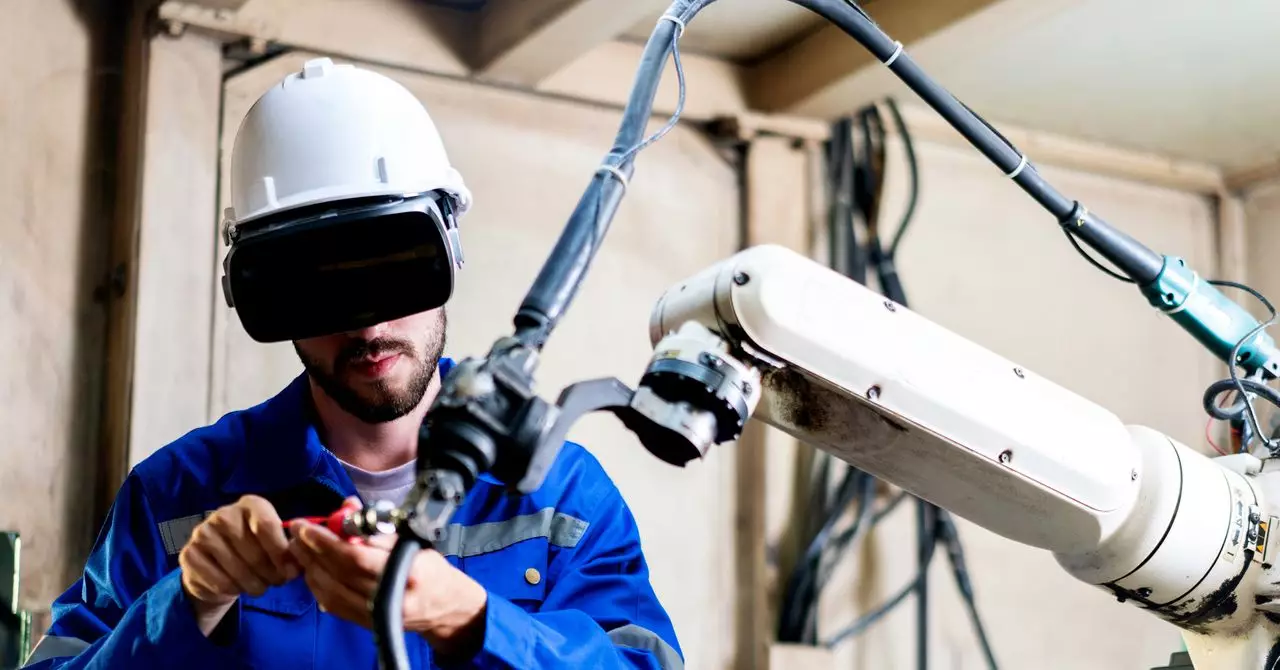In recent years, the manufacturing sector has undergone a remarkable transformation, primarily fueled by advancements in digital technology. Gone are the days when automakers like BMW had to physically test whether their chassis fit through production lines—an exhaustive process fraught with pitfalls and uncertainties. The introduction of the industrial metaverse has revolutionized this paradigm, allowing process engineers to conduct virtual simulations, thereby identifying potential issues before the actual construction of production lines begins. This not only streamlines operations but also significantly reduces costs, showcasing the metaverse’s potential as a game-changer in manufacturing.
The Metaverse: Beyond Virtual Reality
Though the notion of the metaverse often conjures images of social interactions through avatars or digital hangouts, its most significant applications are emerging within industrial contexts. According to a World Economic Forum report, the industrial metaverse is projected to reach a staggering $100 billion in value by 2030. This focused realm encompasses a variety of cutting-edge technologies, from augmented reality to AI-driven simulations. Varvn Aryacetas, a leader in Deloitte’s AI strategy, aptly describes the industrial metaverse as “spatial computing,” emphasizing its role in harmonizing the digital and physical realms. Whether it’s virtual training, digital product design, or the simulation of entire factories, the utility of this technology is becoming indispensable.
Nvidia’s Omniverse: Driving the Change
At the forefront of this technological revolution is Nvidia’s Omniverse, an advanced platform designed to facilitate simulations and automate processes. Rev Lebaredian, Nvidia’s VP of Omniverse, underscores the broad applicability of this technology across various domains. He notes that creating accurate digital representations of real-world environments is essential for enhancing systems that possess some form of autonomy. From service industries to logistics, this technology has countless potential applications.
Companies like Lowe’s have begun utilizing the Omniverse to rigorously test new layouts in digital environments before making costly physical alterations in stores. Zaha Hadid Architects leverages this platform to construct virtual architectural models that enhance collaboration among remote teams. Likewise, giants like Amazon simulate their warehouse operations to ensure their robots learn effectively in virtual settings before they operate alongside human workers. The beauty of these simulations lies in their capacity to preemptively tackle potential issues, paving the way for streamlined operations and enhanced productivity.
BMW: Pioneering Virtual Manufacturing
BMW’s adoption of virtual models for its manufacturing facilities illustrates the immense potential of the industrial metaverse. With a commitment to innovation, the company has constructed a digital twin for each of its locations, including the state-of-the-art factory in Debrecen, Hungary. Before laying a single brick, BMW was able to simulate its entire production process in remarkably detailed 3D models, complete with representations of cars, machinery, and personnel.
One aspect that stands out is BMW’s use of the Universal Scene Description (OpenUSD) format, originally developed by Pixar. This choice illustrates a strategic pivot toward leveraging creative technology to solve complex manufacturing problems. According to Matthias Mayr, a virtual factory specialist at BMW, the ability to create expansive digital models is akin to navigating a virtual world—much like players in a video game. Initially employing a game-like navigational style, the interface evolved to facilitate easier exploration, akin to a user-friendly experience found in Google Street View. This significant shift enhances accessibility, ensuring that personnel from various departments can engage with the virtual factory model seamlessly.
Future Implications and Challenges
While the benefits of the industrial metaverse are compelling, several challenges remain. The integration of different technologies requires robust collaboration and standardization to ensure compatibility across various systems. Additionally, concerns around data security and privacy must be addressed as companies increasingly digitize their operations. Moreover, organizations must be mindful of the skills gap; as technology evolves, the workforce will need training in new tools and systems, thus necessitating investments in employee development.
Nonetheless, the industrial metaverse stands poised to redefine manufacturing as we know it. By harnessing advanced simulations and digital twins, businesses can enhance efficiency, reduce overhead, and foster innovation in ways previously thought impossible. As industries adapt to this new digital frontier, the potential for transformative growth is vast, promising a future where boundaries between the physical and digital worlds fade away.

